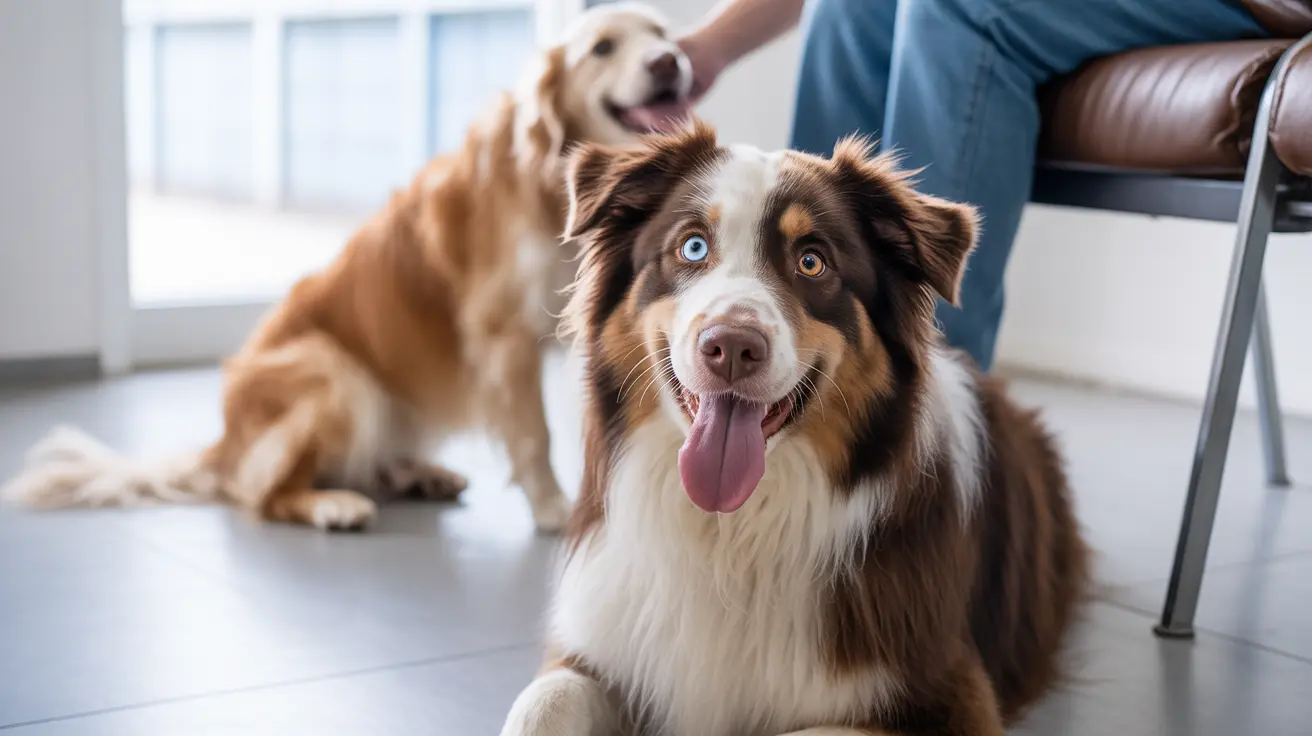When household budgets tighten, pet care expenses often become difficult to manage, leaving many loving pet owners struggling to provide essential healthcare for their furry family members. Recognizing this challenge, a local animal shelter in Murphysboro, Illinois, is stepping up to ensure pets don't suffer when finances get tight. Through their free pet vaccine clinic Illinois initiative, they're helping bridge the gap between economic hardship and responsible pet ownership.
This community-driven approach to affordable pet care demonstrates how local organizations can make a significant impact on both individual pet health and broader public health concerns. By offering accessible vaccination services, the shelter is helping pet parents maintain their animals' health while supporting the overall well-being of the community.
The Impact of Economic Hardship on Pet Care
During challenging economic times, pet owners face difficult decisions about healthcare priorities. Veterinary costs, while essential, can strain already tight budgets, potentially leading to delayed or skipped vaccinations that protect both pets and the community from preventable diseases.
The Murphysboro shelter's free vaccine clinic addresses this critical need by removing financial barriers to essential pet healthcare. This proactive approach helps ensure that pets receive life-saving vaccinations regardless of their owners' economic circumstances, ultimately benefiting the entire community through disease prevention.
Essential Vaccinations Typically Offered
Most low-cost pet vaccinations IL clinics provide core vaccines that protect against serious infectious diseases. For dogs, this typically includes the distemper vaccine for dogs (often given as DAPPV), which protects against distemper, adenovirus, parvovirus, and parainfluenza. The FVRCP cat vaccine provides similar protection for felines against feline viral rhinotracheitis, calicivirus, and panleukopenia.
The rabies vaccine Illinois law requires is also commonly available at these clinics, as it's mandated by state regulations for both dogs and cats. Some facilities may also offer the kennel cough vaccination IL and other preventive treatments depending on resources and community needs.
Additional Services Beyond Vaccinations
Many free vaccine clinics expand their services beyond basic immunizations to provide comprehensive preventive care. Microchipping for pets Illinois is frequently offered, providing permanent identification that can help reunite lost pets with their families. This service is particularly valuable as it offers lifetime protection for a one-time investment.
Some clinics also provide flea and tick preventatives, basic health screenings, and educational resources about responsible pet ownership. These additional services help create a more complete approach to pet wellness within budget-conscious communities.
Finding Low-Cost Pet Care Chicago and Throughout Illinois
Illinois pet vaccination requirements can be met through various community resources beyond traditional veterinary clinics. Animal shelters, county health departments, and nonprofit organizations regularly host vaccination events throughout the state. Pet vaccination clinics near me can be found through online searches, social media announcements, and community bulletin boards.
Many of these programs operate on scheduled dates throughout the year, making it important for pet owners to stay informed about upcoming opportunities in their area. Some organizations maintain waiting lists or registration systems to ensure adequate vaccine supplies and staff availability.
Special Programs for Veterans
Several Illinois communities offer specialized programs like free vaccines for pets veterans, recognizing the important bond between service members and their companion animals. These Illinois animal shelter vaccine clinic programs often provide comprehensive care packages specifically designed for military families facing financial challenges.
These veteran-focused initiatives understand that pets provide crucial emotional support and companionship, making their healthcare needs a priority for families who have served our country.
Frequently Asked Questions
Where can I find free or low-cost pet vaccine clinics in Illinois to keep my dog or cat healthy?
You can find free or low-cost pet vaccine clinics throughout Illinois hosted by animal shelters, counties like Cook or Madison, nonprofit organizations, and local vet clinics. These clinics often offer rabies, distemper, and other essential vaccinations, as well as microchipping services.
What vaccinations are typically provided at these free or low-cost pet vaccine clinics?
Common vaccines given include rabies (required by Illinois law), distemper for dogs (DAPPV) and cats (FVRCP), and sometimes bordetella for kennel cough prevention. Clinics may also provide flea/tick preventatives and microchips.
Do I need to bring any specific documents or proof to attend a free vaccine clinic for my pet?
Yes, most clinics require proof of residency (such as a state ID or driver's license) and sometimes proof of eligibility for special groups like military veterans. It's also important to bring previous vaccination records if your pet is receiving a multi-year vaccine.
How do free vaccine clinics help both pet and community health during economic hardships?
By providing accessible vaccinations and preventive care, free clinics reduce the spread of infectious diseases like rabies and distemper. They also lower shelter intake rates by keeping pets healthy and helping owners maintain preventive care despite financial challenges.
Supporting Community Pet Health
The Murphysboro shelter's initiative represents a growing trend of community-supported pet healthcare that recognizes the vital role pets play in our lives. These programs help ensure that economic hardship doesn't compromise the health and safety of beloved animal companions or the broader community.
By supporting and participating in these free vaccine clinics, communities create stronger bonds between pet owners and local resources while promoting responsible pet ownership for families at every income level.






